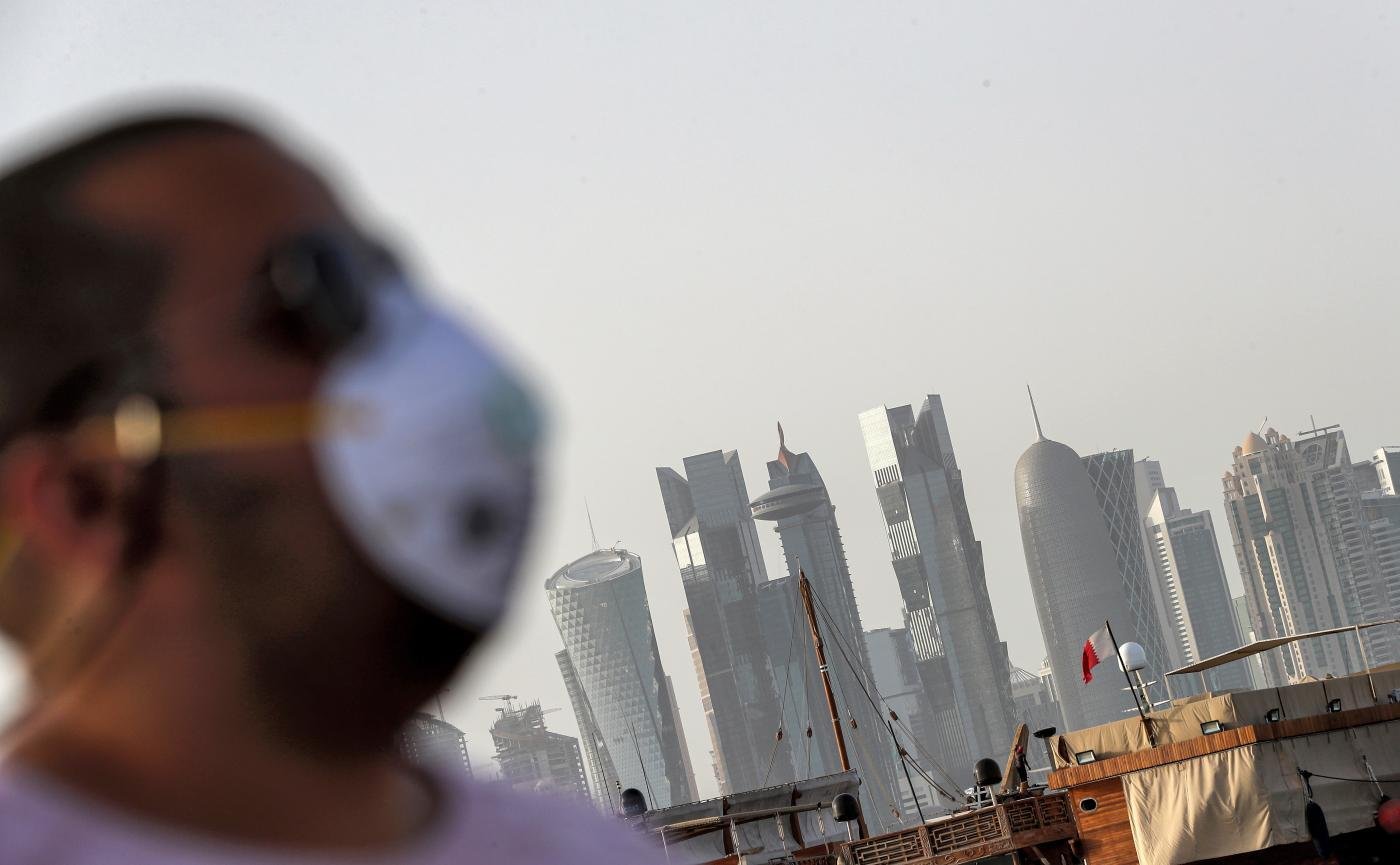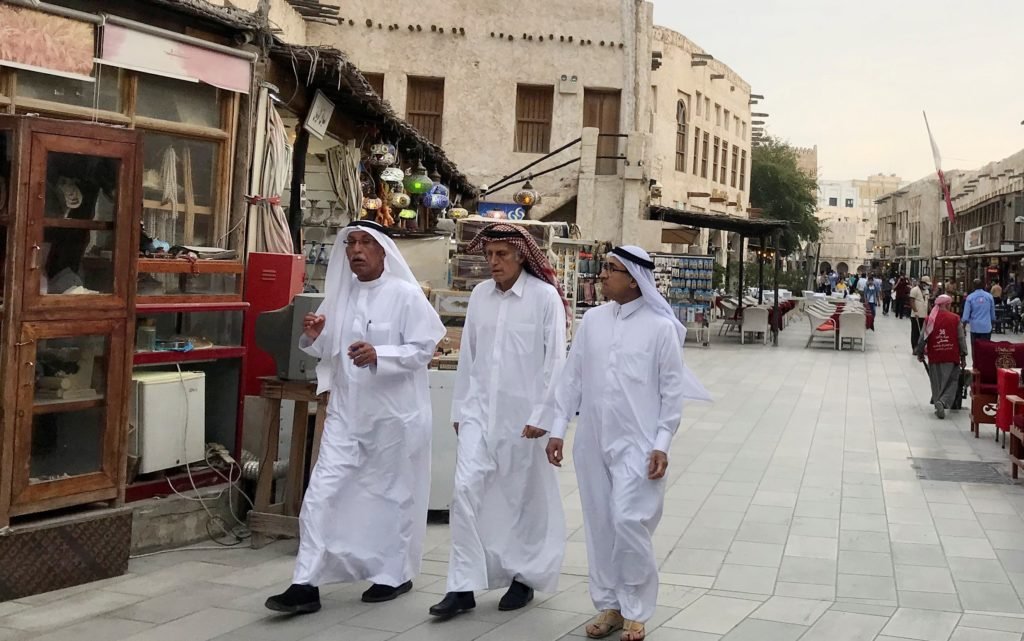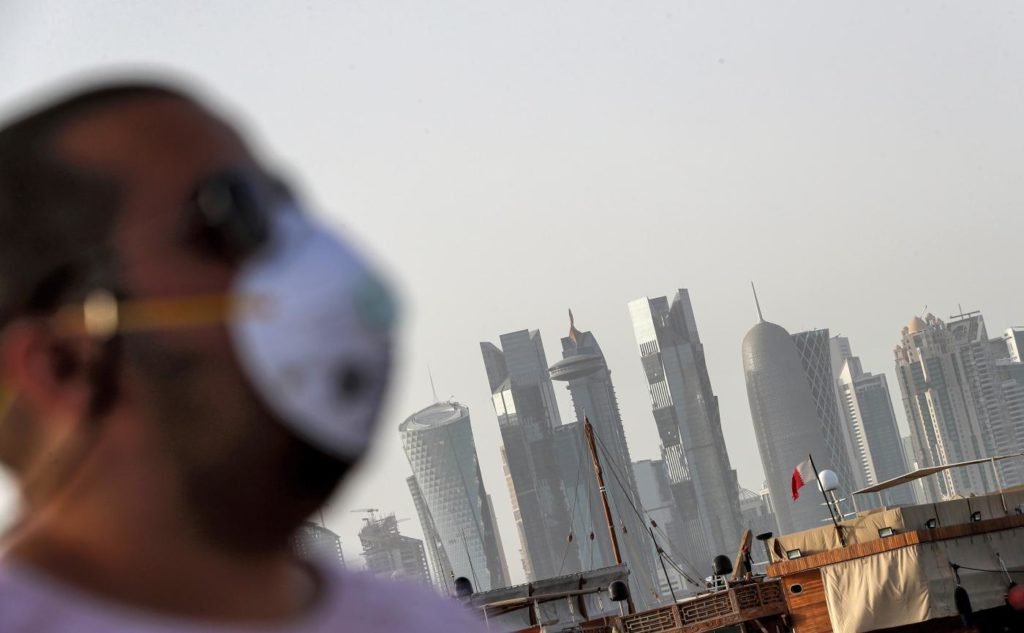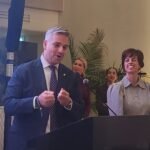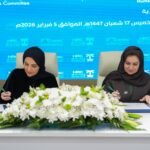03 April 2020 (with courtesy of Middle East Eye)
By Andreas Krieg
The lessons from the blockade in 2017 were learned and they have equipped the peninsula well for a world in lock down.
The images of empty shelves in Europe have triggered fears of severe supply chain disruption causing more panic buying and hoarding. Intriguingly, toilet rolls have become the new commodity to hold as markets are taking a plunge across the board.
While supermarket shelves will slowly refill, the Covid-19 crisis has revealed strategic vulnerabilities in supply chains. Global supply chains are overstretched in such a way that any disruption to component production in East Asia or trade routes in the Middle East, regardless of how geographically dislocated, causes critical disruption to manufacturing in the West.
Order and disorder
With the epicenter of Covid-19 having moved from East Asia to Europe, the issue now is no longer just with upstream suppliers in China, hit hard by provincial quarantines, but upstream suppliers across a continent going into lock down.
The intricate web of supply chains in Europe alone requires borders to be open, as well as local manufacturers, farmers, truck drivers and dock workers going to work. Now that this web appears to be under increased stress, the words of the Chinese military theorist Sun Tzu appear to ring true more than ever: "The line between disorder and order lies in logistics."
Meanwhile, looking at the Gulf region, supermarket shelves seem to be filled and panic buying has been widely absent. Most remarkably, Qatar - a tiny, albeit extremely wealthy, tribal monarchy - has proven to be resilient despite the Covid-19 crisis hitting the peninsula at a time when it remains subject to an air, land and sea blockade by its neighbours in place for nearly three years.
Weathering the storm
With few corridors to bring in supplies, Qatar has learned how to weather the storm, diversify its supply chains, localise supplies where necessary and build up strategic reserves to be ranked first in the MENA region in the Economist's Food Security Index.
In 2014, during the last Gulf crisis, when the same protagonists (Saudi Arabia, UAE, Egypt and Bahrain) withdrew their ambassadors from Doha, Qatar was one of the least resilient countries in the region: almost 90 percent of its supplies of food, construction material and other staples had to be imported - a figure that by 2017 had slightly dropped to just above 80 percent.
When Saudi Arabia, the UAE and Bahrain decided to impose a blockade on the peninsula of Qatar in June 2017, the vast majority of Qatar’s imports came via truck through the only land border, with Saudi Arabia, or were transhipped via the Jebel Ali port in Dubai. Overnight, those supply routes dried up.
It came as no surprise that in the first month of the blockade, Qatar’s imports dropped by 40 percent as the government was quick to invest into new, initially airborne, trade routes to get necessary supplies in.
While most of its imports had come from or via its neighbours due to longstanding commitments to local support, Qatar was now free to diversify its trade routes and supply chains, moving from the GCC to more than 80 countries in the world.
Equally important was the opening of the Hamad Port in September 2017, 14 times larger than its predecessor, Doha Port, which allowed larger ships to directly dock in Qatar without goods having to be transshipped via the UAE.
Highest per capita
Meanwhile, Qatar has expanded its strategic reserves of perishable goods and food products to last for at least 10 months. As the country’s rentier economy is centrally administered, consumer prices can be fixed by the Ministry of Economy and Commerce, and food price shocks avoided. The fact that Qatar has the world's highest GDP per capita certainly helps counteracting any supply strains with generous subsidies.
Another important element of Qatar’s growing supply chain resilience is the localisation of sourcing where possible. Construction material, food supplies and other daily essentials are now increasingly produced locally.
Within 18 months from 2017, Qatar went from 10 percent domestic dairy production to more than self-sufficiency, as the story of the airlift of thousands of milk cows into the desert state went viral.
The government-sponsored ' Own Your Factory in 72 hours' scheme speed-started more than 70 projects for the manufacture of strategic commodities at home, such as cement, steel and plastics.
Blockade lessons learned
While Qatar can still do more to shorten supply chains, localise production and make its trade routes more robust, the lessons from the blockade in 2017 were learned, preparing the peninsula well for a world in lockdown, where neighbours and global partners appear to pull up their drawbridges.
The country’s strategic outlook to supply chain management can be summed up best in a comment made by Qatar’s finance minister in 2017: “We are a peninsula. Now we are operating as an island.”
In the aftermath of Covid-19, we will all have to question the resilience of our supply chains and cut them shorter, even if that means paying more at the till.
While in Europe and the US we do not have the luxury of a rentier state heavily subsidising local production and consumer goods pricing, the case of Qatar still offers lessons for how supply chains can be diversified and localised - not least for products that are essential in a public health crisis such as this.
The views expressed in this article belong to the author and do not necessarily reflect the editorial policy of Middle East Eye.
About the author:
Andreas Krieg Dr. Andreas Krieg is an assistant professor at the Defence Studies Department of King's College London and a strategic risk consultant working for governmental and commercial clients in the Middle East. He recently published a book called 'Socio-political order and security in the Arab World'.

